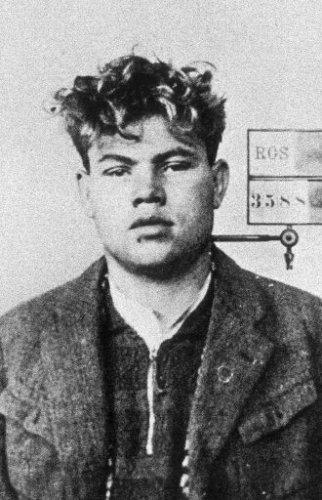Tanya Savicheva died near her hometown of Leningrad on 1 July 1944, aged only 14. Who was Tanya Savicheva? The name in Russia is what Anne Frank is to the West – a young innocent victim of World War Two, who left behind a small but lasting legacy.
 But whereas Anne’s diary is a carefully kept journal over a period of two years, Tanya’s was little more than a few scribbled lines over six sheets of notepaper.
But whereas Anne’s diary is a carefully kept journal over a period of two years, Tanya’s was little more than a few scribbled lines over six sheets of notepaper.
Leningrad Siege
Leningrad (modern-day St Petersburg) was in the midst of a devastating 900-day blockade that lasted from September 1941 until January 1944. The German army had laid siege to the city, bombarded it, and cut off all supplies in its attempt to ‘wipe it off the map’, as Hitler had ordered.
The Savicheva family had all answered the call to help bolster the city’s defences. Tanya, only 11 years old, helped dig anti-tank trenches. On 12 September 1941, the largest food warehouse, the Badayev, was destroyed, having been bombed with German incendiaries. Three thousand tonnes of flour burned, thousands of tons of grain went up in smoke, meat frazzled, butter melted, and sugar turned molten and seeped into the cellars. ‘The streets that night ran with melted chocolate,’ said one witness, ‘and the air was rich and sticky with the smell of burning sugar.’ The situation, already severe, became critical.
Road of Life
 Although trade unions were banned, Father
Although trade unions were banned, Father  Born in Berlin on 20 January 1877, Karl Hans Lody spoke perfect English with an American accent, having been married to an American and living in Nebraska. Having obtained a US passport under the name Charles A. Inglis, which allowed him to travel freely,
Born in Berlin on 20 January 1877, Karl Hans Lody spoke perfect English with an American accent, having been married to an American and living in Nebraska. Having obtained a US passport under the name Charles A. Inglis, which allowed him to travel freely,  Reinhard Heydrich
Reinhard Heydrich The Prague Spring had been led by Czechoslovakia’s new communist party chairman, Alexander Dubcek, appointed in January 1968. Although claiming to be loyal to his Soviet masters in Moscow, Dubcek ushered in a period of political and cultural freedom unheard of in the previous twenty years of Czechoslovakian communist rule. The Soviet leadership, under Leonid Brezhnev (pictured), became increasingly concerned with what they considered Dubcek’s treachery and Czechoslovakia’s counterrevolution and demanded he reversed the reforms.
The Prague Spring had been led by Czechoslovakia’s new communist party chairman, Alexander Dubcek, appointed in January 1968. Although claiming to be loyal to his Soviet masters in Moscow, Dubcek ushered in a period of political and cultural freedom unheard of in the previous twenty years of Czechoslovakian communist rule. The Soviet leadership, under Leonid Brezhnev (pictured), became increasingly concerned with what they considered Dubcek’s treachery and Czechoslovakia’s counterrevolution and demanded he reversed the reforms. At the time of his birth, Goring’s parents were stationed in Haiti, his father working for the German consul there. His mother returned to Germany to give birth, then promptly returned to Haiti, leaving baby Hermann with a friend, not to see her child again for three years.
At the time of his birth, Goring’s parents were stationed in Haiti, his father working for the German consul there. His mother returned to Germany to give birth, then promptly returned to Haiti, leaving baby Hermann with a friend, not to see her child again for three years. Galeazzo Ciano’s father had made a name for himself as an admiral during the First World War. An early supporter of Benito Mussolini’s, he built his fortune through some unethical business deals. Thus, Galeazzo, born 18 March 1903, was brought up in an environment of wealth and luxury, and inherited his father’s love for fascism. Father and son both took part in Mussolini’s 1922 ‘March on Rome’.
Galeazzo Ciano’s father had made a name for himself as an admiral during the First World War. An early supporter of Benito Mussolini’s, he built his fortune through some unethical business deals. Thus, Galeazzo, born 18 March 1903, was brought up in an environment of wealth and luxury, and inherited his father’s love for fascism. Father and son both took part in Mussolini’s 1922 ‘March on Rome’. The ‘Communist culprit’ was
The ‘Communist culprit’ was  Richard Nixon was elected to the Senate in 1950, aged 36, where
Richard Nixon was elected to the Senate in 1950, aged 36, where